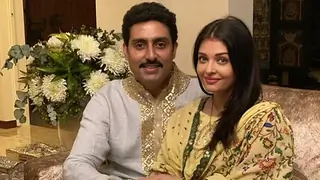https://psyche.co/ideas/is-it-wrong-to-be-good-friends-with-a-bad-person?utm_source=Psyche+Magazine&utm_campaign=a436ee3280-EMAIL_CAMPAIGN_2025_09_12&utm_medium=email&utm_term=0_-8e23a7006c-838120577
Is it wrong to be good friends with a bad person?
by Yiran Hua, postdoctoral fellow in philosophy
Many think the answer is obvious: we ought to cut immoral people out of our lives. But that isn’t necessarily the best option
Naturally, you consider yourself to be a morally OK person. But recently you’ve found out that one of your friends is not. Perhaps it’s come to light that this friend cheats on their spouse, or abuses their employees, or voted for a certain candidate in the last presidential election, or is the culprit behind a massive Ponzi scheme. Important practical questions follow from this revelation: is it morally acceptable to continue being friends with them? Does the continuation of your friendship say something morally problematic about you, too? Can you be good friends with a bad person?
From my personal experience of unwisely engaging in online discussions about such matters, I’ve observed that many people think the answer is obvious: we ought to cut bad people from our lives. If we know someone to have committed immoral deeds, then counting them as a friend seems to imply guilt by association. Out of so many people we could be friends with, why associate with the morally bankrupt? It seems to break our commitment to rallying against injustice in the world if we’re chummy with those who do the wrong thing.
This common intuition that we shouldn’t be good friends with bad people is supported by two assumptions. The first is about how your bad friend might influence or change you. That is, we tend to assume that friends take on each other’s traits. This involves both moral and non-moral traits.
One of the first lessons I learned in fourth-grade primary school in China was to keep away from kids who had bad exam marks: 近朱者赤, 近墨者黑 – ‘Proximity to cinnabar makes one red, and proximity to ink makes one black.’ My teacher instructed me to copy this idiom 20 times in my notebook, when I was called into her office. Whispers among the teachers were that I was hanging out with a girl who did not do well in school. They felt that the association with such a delinquent must be broken, and the lesson was driven home by copying that phrase again and again. Walking out of that office, I learned that bad grades were contagions that one could contract upon friendly contact. If I wanted to be a good student, I should withdraw myself from the friendship to avoid my friend’s slipping grades rubbing off on mine.
Only a morally defective person would count Ivan the Terrible as a friend
The idea that friends assimilate each other is ubiquitous. It can be traced back to Aristotle, who argued that, in order for friends to be true and good, they must share some kind of core similarity. It resonates with contemporary scholars as well. Dean Cocking and Jeanette Kennett, two influential philosophers of friendship, argue that friends must be open to being shaped by each other’s central values. However, this assumption poses a moral problem if we count bad people as friends. We are, one might think, taking on an unjustifiable risk of becoming bad like our friend. We should withdraw ourselves from these friendships to avoid being tainted by their immoral traits.
The second assumption that supports this intuition has little to do with how your friend might change you. Rather, your mere association with the bad person already says something bad about you. Think, for example, about Ivan the Terrible (whose name, dare I say, is telling of his deeds). Suppose we have come to discover that Ivan the Terrible had a close friend during his brutal rule of 14th-century Russia. Without knowing any other details about the friend, we can already form a moral judgment about him, since only a morally defective person would count someone as ruthless and murderous as Ivan the Terrible as a friend. It does not matter whether he was otherwise an extremely decent guy. If he counted a bad person as a friend, it means he didn’t take their immoral deeds all that seriously – and that’s a serious problem.
And yet, despite these two compelling assumptions, I think there is indeed a way to maintain one’s moral integrity while counting a bad person as a friend. This is because though these two assumptions are often true, they are not always true.
At least, they are not true of Daryl Davis, a Black jazz musician who has befriended countless Ku Klux Klan members over the past 30 years. His friendships gave him the opportunity to persuade them to give up their robes and leave the notorious organisation. Davis did not set out to befriend or convert any of the Klan members. At first, he just wanted to understand why these people held white supremacist beliefs. Yet, unlikely friendships bloomed between them. Now, can we charge Davis with the wrong of assimilating to his Klan friends or not taking racism seriously enough? The answer is obviously no.
Davis’s experience offers some key insights about being good friends with bad people. Though friends do tend to assimilate each other, a person who firmly knows their friend’s beliefs to be wrong can resist assimilation. Being friends with someone does not mean you have to sign on to all of their beliefs. If on a roadtrip you know your friend to be an extremely unreliable navigator, you can disregard their directions or doublecheck them yourself, no matter how much false confidence your friend may have. Similarly, if you, like Davis, confidently know your friend’s moral beliefs to be incorrect, you also run very little risk of being converted. Why should your friendship dictate that you believe in falsity as you know it?
I want to be chosen for who I am as a friend, not because you need to do your daily good deed
Secondly, a choice of friendship is not always telling of one’s moral priorities. Davis didn’t choose to be friends with Klan members because he cared about the fun he could be having with these friends more than the harmful effects of their racism. Friends do not have to be complacent. They can be proactive in encouraging their friends to change for the better. We’ve all heard stories about good friends pulling one another out of a pit of despair. We shouldn’t shy away from the possibility that friends can pull each other out of moral abysses as well.
On the other hand, even if the friend isn’t proactive in changing the bad person’s mind, the mere bond of friendship can be morally good for the bad person’s character as well. Davis could be the only morally upright friend that the Klan members have. If he had severed friendship with Klan members over differences in moral views, then they would likely drift further into their bonds with like-minded supremacists. From a purely moral standpoint, sometimes being friends with bad people might in fact be the best option.
That said, this doesn’t mean that one has an obligation to be friends with bad people for moral reasons. The beauty of friendship is that it is a voluntary relationship. Maintaining friendship with a bad person can simply be too much; you can’t spend all of your energy being angry at your friend or arguing with them about fundamental principles. These are permissible reasons for you to break up with a friend. Moreover, friendships that are maintained purely out of a sense of obligation tend to be inauthentic. If you genuinely choose me as a friend, I want to be chosen for who I am, not because you need to do your daily good deed. This does not mean that you have to admire or agree with all of my beliefs and values. But it does mean that you must love me and not simply want to save me.
So how should we be good friends with a bad person? We should make sure that our moral commitments are intact and unlikely to be influenced by friendship. We should strive to be non-complacent about our friend’s bad moral beliefs. This often calls for a dimension of antagonism in the friendship. But that’s OK. We shouldn’t realistically expect friendships to be perfectly harmonious in the first place. In fact, if a friendship can survive massive ideological differences and constant conflict, it speaks to the strength of love between the friends, not the weakness in one friend’s moral character.





















